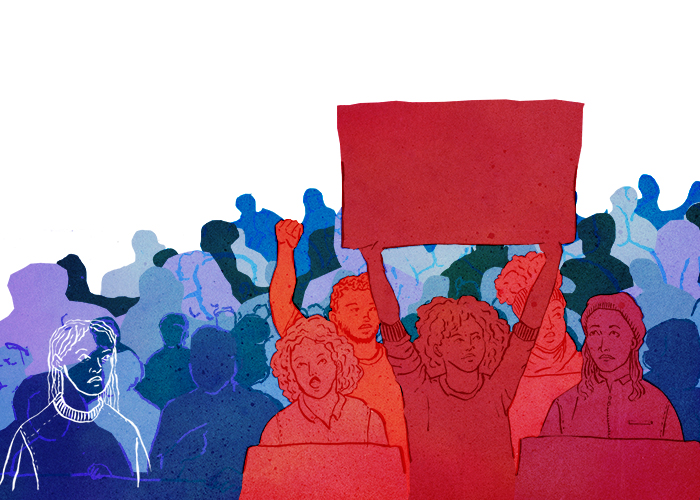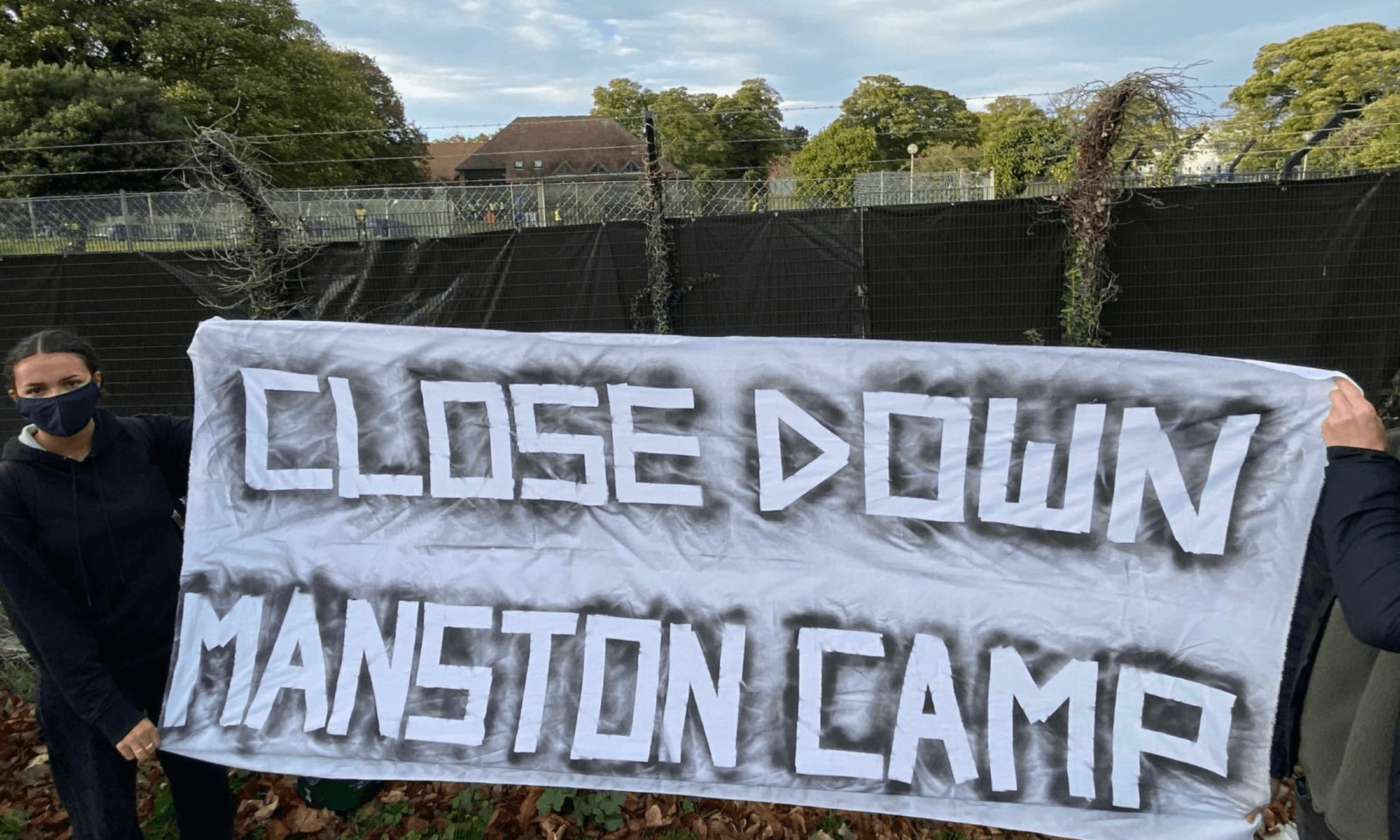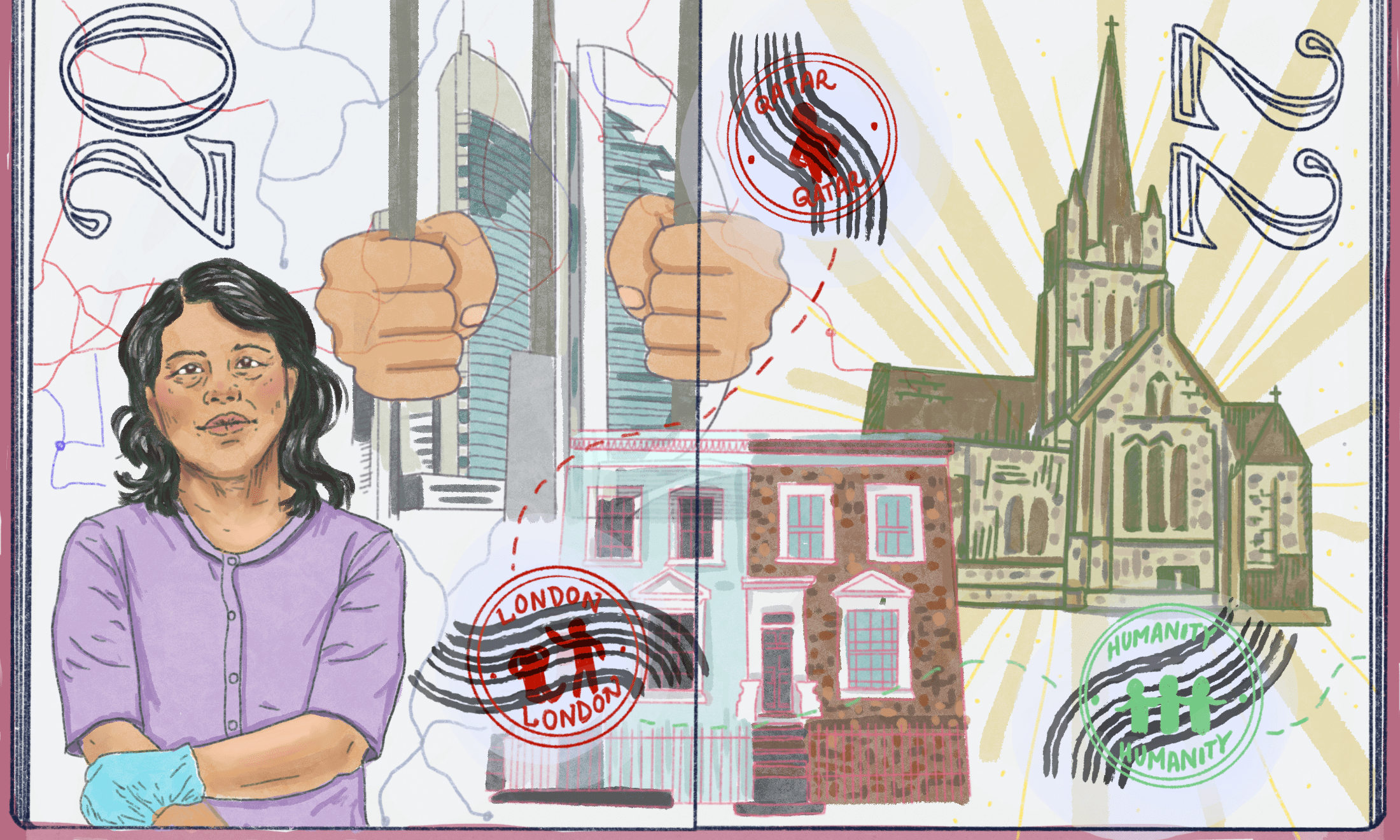
Dawn raids and destitution: cheating allegations intensify hostile environment for students
Leah Cowan
29 Apr 2019
Illustration by Rumbidzai Marilyn Savanhu
For many students, the intense circus of essays, exams, and adapting to living away from home brings a raft of challenges that can be difficult to adjust to. Students who travel to the UK to pursue higher education face the additional task of navigating complex immigration systems, as well as carrying the hopes of relatives and loved ones who have saved up for decades in order to pay high fees. Imagine, then, being thousands of miles from home and learning that you have been accused of cheating on a simple English language test. In a matter of days, such an allegation results in the revocation of your visa, leaving you destitute.
Last week it came to light that the Home Office is facing over 300 legal challenges from students who believe they have been falsely accused of cheating on an English language test as part of their student visa applications. In 2014, a BBC Panorama investigation exposed cheating by freelance invigilators in two English language test centres which led to the government taking action to refuse, revoke or curtail 35,870 students’ visas. A further 22,000 students were told that their test results were “questionable”.
The key detail in this saga goes deep into the festering heart of the hostile environment which the government has constructed to make life in the UK untenable for migrant communities. It has emerged that the evidence used to substantiate the cheating allegations, provided by the Educational Testing Service (ETS), which ran the tests, has been widely dismissed as flawed and severely lacking in credibility.
The English language test allegations appear to tessellate neatly within the wider framework of hostile environment policies, which through the Immigration Acts 2014 and 2016 introduced a raft of policies creating barriers for migrant communities in multiple areas of public and private life. Due to intensified immigration policies, people who do not have stable or straightforward leave to remain or documentation, or are simply profiled as “foreign” face obstacles and discrimination when trying to rent a house, access health care, or simply open a bank account.
“Some students have been arrested in dawn raids by police officers, before being forcibly removed from the UK”
Nazek Ramadan, the Director of Migrant Voice, a migrant-led organisation working to centre the voices of migrant communities in public debate, is deeply concerned about the effect of possible false allegations on students. “The impact is enormous,” she explains. “These are young people who came [to the UK] at a very young age, with big dreams and hopes. They now have a criminal allegation hanging over them – it means they cannot go to another university, and nobody will employ them”. Many young people who have had their visas curtailed do not have a support network of friends and family in the country, so have resorted to sleeping in mosques, churches, and relying on help from charities. Nazek explains that some students have been arrested in dawn raids by police officers, and incarcerated in detention centres for two or three months before being forcibly deported.
Nazek tells me that one student her organisation supports is destitute because his family would not believe that he did not cheat. She explains, ironically: “His family did not believe [a false allegation] could happen because the UK has not just the best education, but they also have a fair justice system. They told him that he has brought shame on the family, and wasted their life savings”. She also told me that many of the students who are living in limbo whilst they fight to clear their names have developed mental health problems; some are on medication for depression and experiencing suicidal thoughts.
Jashmin Patel, BME Women’s Hub Project Manager at the Migrant’s Rights Network sees the cheating allegations as part of an intensified focus on “integration”. Jashmin makes reference to comments made this month by ex-Prime Minister Tony Blair in his foreword to a report by his Institute for Global Change. In the report, he laments what he perceives as a refusal to integrate and reinforces a “duty” to accept the rules, laws and norms that, he claims, “all British people hold in common”.
“This situation is absolutely part of the wider hostile environment agenda,” Jashmin explains. “From attempts to forcibly remove migrants under counter-terrorism legislation simply for making legal amendments to their tax returns, to data-sharing between the Home Office and NHS digital for immigration enforcement, these incidents are all located in an environment crafted through the lens of a racist and xenophobic agenda.”
“The cheating allegations are not an isolated example of immigration enforcement intruding into learning spaces”
As Jashmin suggests, the cheating allegations are not an isolated example of immigration enforcement intruding into learning spaces. In 2016, the Department for Education (DfE) introduced new measures which instructed schools to collect data about children’s nationality and country of birth. These measures emerged in the context of an enquiry into the prevalence of “education tourism”, and shady memorandums between the DfE and the Home Office permitting data-sharing for immigration enforcement purposes. In 2018, persistent campaigning by migrant’s rights groups and Against Borders for Children (Schools ABC) led to the UK government issuing new guidance confirming that this data would no longer be collected in school settings.
Tens of thousands of students have been affected by these allegations, and only a small proportion will have access to the support and resources to seek legal redress. For the rest, these allegations continue to seriously disrupt their education, careers, and lives, forcing many into situations of poverty and destitution. Ramadan explains that many of the students, some of who are studying at Masters and PhD level, have high pass results from other English tests that are far more complicated and they feel insulted by the accusations.
In general, the students just want to be given the opportunity to resit the test so that the charges can be dropped and they can continue with their studies. The impact of allegations, which in many cases will be irreversible, are a damning indictment of a spectrum of government immigration policies ranging from tepid calls for “integration”, to sustained campaigns to target, detain and deport migrant communities and communities of colour. The hostile environment is not a benign web of legislation, but a violent call to arms for the creeping enforcement of everyday borders, which will need to be resisted at every turn.









